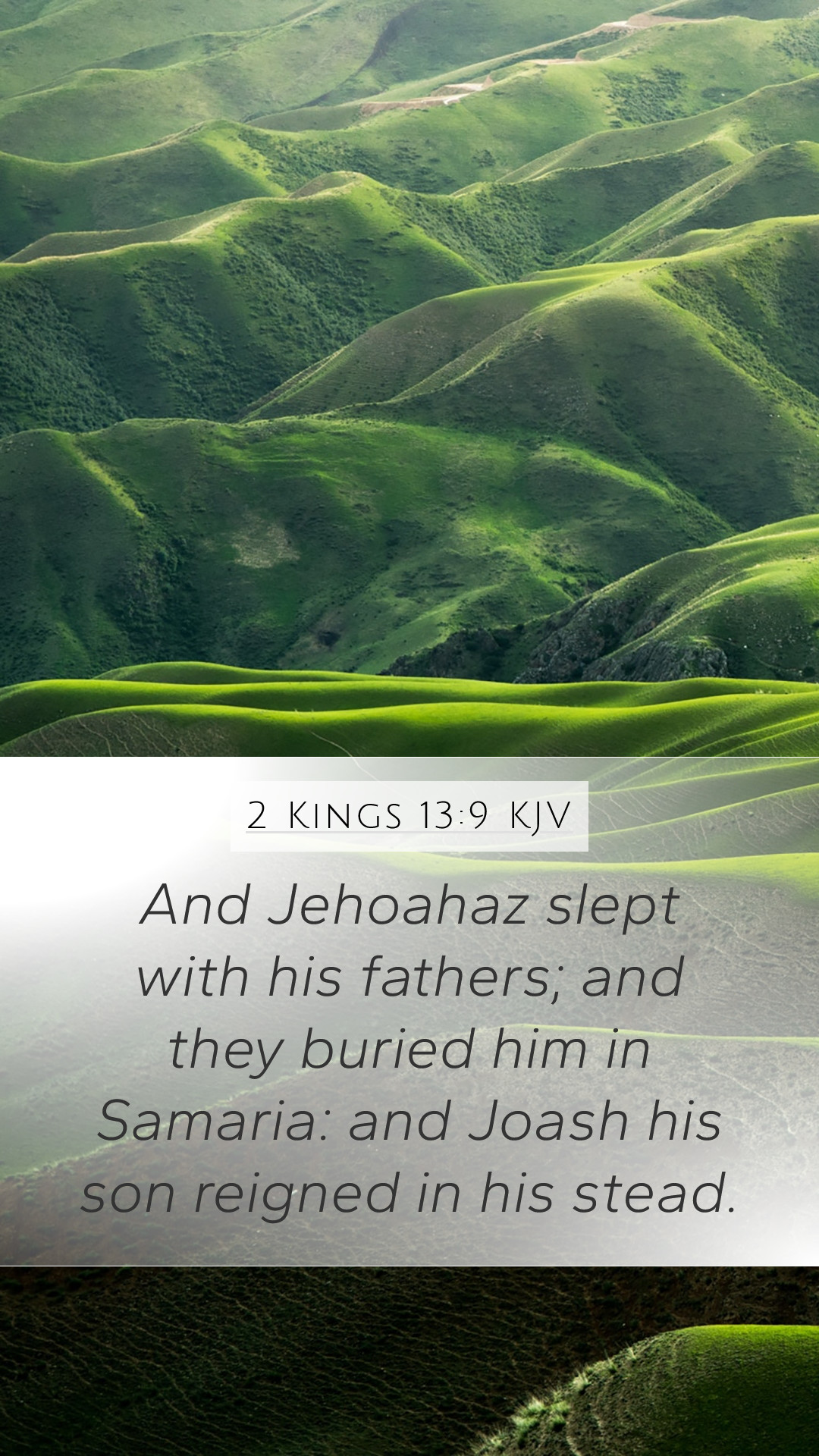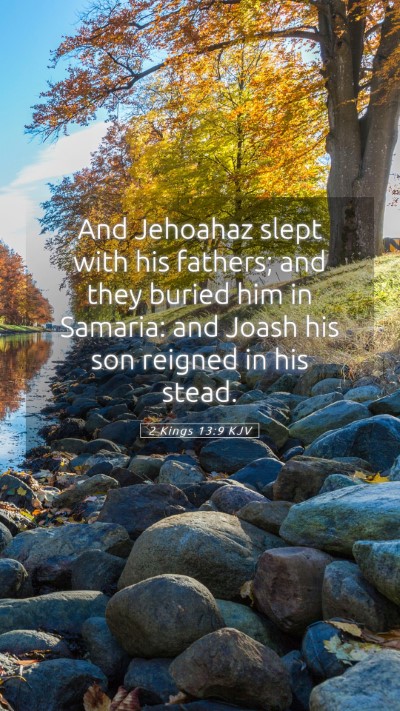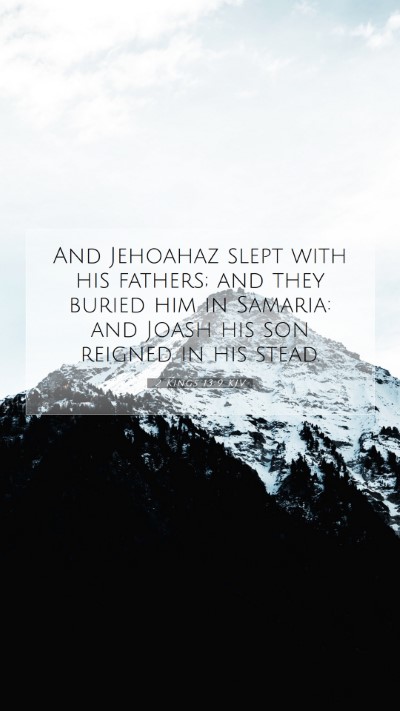Understanding 2 Kings 13:9
The verse 2 Kings 13:9 states: "And Jehoash slept with his fathers; and they buried him in Samaria; and Joash his son reigned in his stead." This verse serves as a crucial moment in the narrative of the kings of Israel, marking the end of Jehoash's reign and the transition to his son, Joash. Through various public domain commentaries, we can draw a deeper meaning and understanding of this passage, especially regarding the legacy of Jehoash and its implications for the kingdom of Israel.
Contextual Background
To fully grasp the significance of this verse, it's essential to consider the historical context. Jehoash reigned as king of Israel during a tumultuous period characterized by both military conflict and internal strife. He was known for restoring the worship of God to some degree, but his reign was also marked by compromise and conflict with surrounding nations.
Commentary Insights
-
Matthew Henry's Commentary:
Matthew Henry emphasizes the transient nature of earthly power. Jehoash's death illustrates that no matter how powerful a king may be, they eventually return to the dust from which they came. His reign, while impactful, was ultimately finite, highlighting the importance of eternal perspectives in the assessment of one's life.
-
Albert Barnes' Notes:
Barnes focuses on the continuity of leadership in Israel. The mention of Joash succeeding Jehoash suggests a planned succession, which is vital for stability in governance. Barnes remarks that transitions of power often carry the weight of past actions, indicating that Joash would inherit not only the throne but also the spiritual and moral standing of his father’s reign.
-
Adam Clarke's Commentary:
Clarke draws attention to the brevity of Jehoash's life and reign. He notes that while Jehoash made strides in military victories, his lack of commitment to God ultimately defined his legacy. Clarke’s insights push the reader to consider the importance of faithfulness to God beyond mere achievements.
Spiritual and Practical Applications
This verse prompts believers to reflect on their legacies. Much like Jehoash, individuals may find themselves in positions of influence; however, it is the spiritual integrity and dedication to God's will that will leave a lasting impact. The importance of righteousness over temporary success can guide our daily actions and decisions.
Key Themes and Lessons
- The Impermanence of Life: Each life is a fleeting moment in the grand narrative of God's plan.
- The Importance of Spiritual Legacy: What legacy do we leave for those who follow us?
- Accountability in Leadership: Leaders must recognize that their decisions carry weight beyond their tenure.
Cross References
Related Bible verses that can enhance the understanding of 2 Kings 13:9 include:
- 2 Kings 12:2: Discusses the reign of Jehoash and his efforts toward restoration.
- 2 Kings 14:1-2: Introduces Joash and the continuation of the royal lineage.
- 1 Chronicles 29:28: Speaks about the deaths of kings and their burial in the royal tombs.
Conclusion
In conclusion, 2 Kings 13:9 serves as a significant marker in the scroll of Israel's history, inviting readers and scholars alike to consider the implications of leadership, legacy, and spiritual integrity. Through the insights of various commentators, we are reminded of the transient nature of earthly power contrasted with the eternal significance of our spiritual commitments. By studying such passages in depth, whether in Bible study groups or through individual online Bible study, we gain Bible study insights that enrich our understanding of Scripture and its applications to our lives today.


